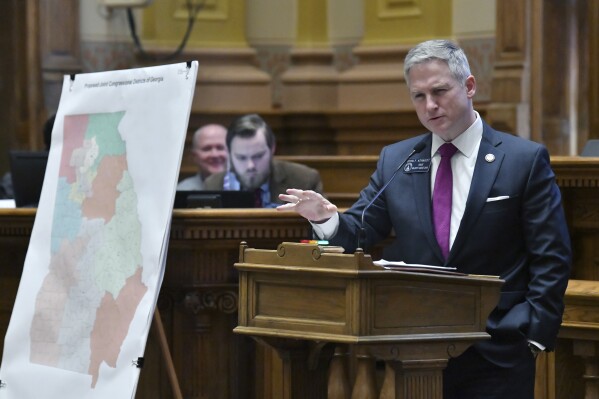Alabama’s forgotten ‘first road’ gets a new tourism focus
TUSCALOOSA, Ala. (AP) — Byler Road is as old as Alabama, authorized by state lawmakers in 1819, to bring settlers to the western part of the state.
The Alabama Department of Tourism, lawmakers and the Byler Road Steering Committee are working to bring awareness and tourism dollars to communities along one of Alabama’s first roadways, the Tuscaloosa News reporred.
“The fact that this is the cornerstone of the development of the state of Alabama from its earliest days makes it unique. I think it is going to have long-term positive consequences,” Lee Sentell, director of the Alabama Tourism Department, told the newspaper.
Sentell spoke at an event this week that kicked off a campaign to begin raising awareness of Alabama’s historic road.
 Judge says Georgia’s congressional and legislative districts are discriminatory and must be redrawn
Judge says Georgia’s congressional and legislative districts are discriminatory and must be redrawn
 No. 24 Alabama turns to transfers and freshmen after stellar season shadowed by controversy
No. 24 Alabama turns to transfers and freshmen after stellar season shadowed by controversy
 Nick Saban enjoying his resilient Alabama team even if the ride has been bumpy
Nick Saban enjoying his resilient Alabama team even if the ride has been bumpy
Byler Road was authorized by the Alabama State Legislature in 1819 and was constructed under the supervision of Capt. John Byler between 1820 and 1823. It served as a toll road since it had to pay for itself. The road began on the Tennessee River in Lauderdale County and ran southward to the Black Warrior River, ending in what is now the city of Northport.
Some sections of the original road have been replaced by newer roads or reclaimed by forests.
The Prewitt Slave Cemetery is one of the historic places along Byler Road. Pat Kemp on Thursday set out small white crosses to honor the people buried there. “My great-great-grandfather and my great-great-grandmother are both buried here,” Kemp told the newspaper.
Kemp, the president of the Prewitt Slave Cemetery Association, said a recent effort by anthropology students from the University of Alabama had discovered 815 to 900 graves in the cemetery that was previously believed to have only held about 300 to 400 graves.
“We really are looking back at this portion of our state’s history and all the historic things that have happened and the people who lived along this trail in order to move forward and try to help ourself economically,” Rep. Tracy Estes, R-Winfield, said.
Disclaimer: The copyright of this article belongs to the original author. Reposting this article is solely for the purpose of information dissemination and does not constitute any investment advice. If there is any infringement, please contact us immediately. We will make corrections or deletions as necessary. Thank you.


